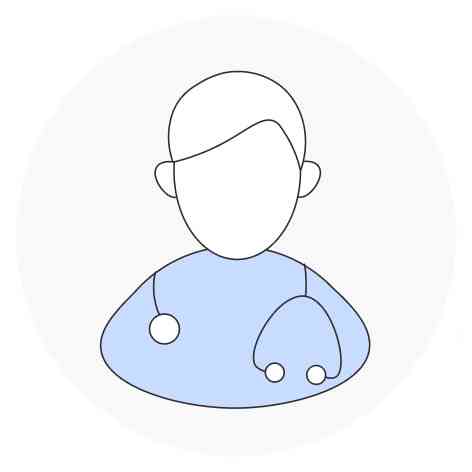Discover advanced Liver Disorders surgery solutions to relieve pain and restore comfort. Our expert team specializes in minimally invasive procedures, ensuring effective treatment for corns and related foot conditions to improve your quality of life.
Book Your Free Second Opinion
30k+
Surgeries Done
50k+
Departments Treated
150k+
Conditions Treated
3k+
Specialist Doctors
200+
Cities

Introduction Of Liver Disorders
Liver disorders encompass a range of conditions affecting the liver, with liver failure being a critical endpoint that can develop slowly over years or rapidly within a matter of days or weeks. There are two main types of liver failure: acute and chronic. The liver plays a crucial role in various bodily functions, including metabolism, detoxification, and protein synthesis, making it essential for overall health and well-being. Understanding the causes, symptoms, and treatment options for liver disorders is vital for effective management and prevention of severe complications.
What You Get From MediBuddy
Get an Expert Second Opinion
Find Top Cashless Hospitals
Find Surgery Cost Estimate
Verify Insurance Coverage
Why MediBuddy For Health Care


Enhanced Quality of Care
Constant support, a network of premium hospitals and top-tier surgeons.

End-to-End Management
Your only focus should be to go and get your procedure done. Leave the rest to us.

Continuous Guidance
Any problem you may face will be resolved with one phone call.

Easy financing support
We bring you the best deals, EMI options without compromising on quality
Types Of Liver Disorders
Liver disorders encompass a wide range of conditions that affect the normal functioning of the liver. A significant category within this spectrum is genetic liver disorders, which are inherited conditions that impact the liver's structure and function. Some examples of genetic liver disorders include: - Alagille syndrome: This is a genetic disorder that primarily affects the liver and results in abnormalities in bile ducts. Symptoms may include jaundice, itching, and poor growth, among others. - Alpers-Huttenlocher syndrome: Also known as Alpers disease, this is a rare genetic disorder that affects the central nervous system and liver. It typically presents in early childhood with symptoms such as seizures, developmental regression, and liver dysfunction. These are just a few examples of genetic liver disorders, each with its unique clinical presentation and management considerations. Understanding the different types of liver disorders is crucial for accurate diagnosis and appropriate treatment planning.
Stages Of Liver Disorders
Liver disorders progress through several stages, each characterized by the extent of damage to the liver and its impact on its functioning. These stages include: 1. Inflammation: In the early stages of liver disorders, inflammation occurs as the body's response to injury or infection. This stage can lead to symptoms such as fatigue, jaundice, and abdominal pain. 2. Fibrosis/Scarring: As the inflammation persists, it can cause the liver tissue to become scarred, leading to fibrosis. The scarring may not initially cause noticeable symptoms, but it indicates that the liver is being damaged. 3. Cirrhosis: If the liver disorder continues to progress unchecked, fibrosis can advance to cirrhosis. Cirrhosis is a condition where extensive scarring replaces healthy liver tissue, impairing liver function significantly. Symptoms of cirrhosis can include fluid retention, confusion, and easy bruising. 4. End-stage Liver Failure/Disease: The final stage of liver disorders is end-stage liver failure or disease. At this point, the liver is severely damaged and is unable to perform its essential functions. This can lead to life-threatening complications such as liver cancer, hepatic encephalopathy, and liver failure. It is crucial for individuals with liver disorders to seek medical attention and appropriate treatment early in the progression of the disease to prevent or slow down the advancement through these stages. Regular monitoring, lifestyle changes, and therapies recommended by healthcare providers can help manage liver disorders and improve quality of life.
How Common Are Liver Disorders
Liver disorders, particularly chronic liver disease, represent a significant health concern globally, with a particularly high impact in developing countries. The prevalence of chronic liver disease has been on the rise in recent times, contributing significantly to mortality rates. Chronic liver disease ranks among the top causes of death, underscoring the importance of understanding and addressing this condition. The increasing prevalence of liver disorders highlights the need for effective prevention strategies, early detection, and optimal management approaches to mitigate the burden of these conditions on individuals and healthcare systems.
Complications Of Liver Disorders
Complications of Liver Disorders: Liver disorders can result in various complications that are dependent on the underlying cause. These complications can potentially lead to liver failure, which is a serious condition that can be life-threatening if not properly addressed. It is important for individuals with liver disorders to be aware of these potential complications and seek appropriate medical care to prevent progression to liver failure. Common complications of liver disorders include: - Ascites: Accumulation of fluid in the abdominal cavity. - Jaundice: Yellowing of the skin and eyes due to impaired liver function. - Hepatic encephalopathy: Brain dysfunction caused by the build-up of toxins in the blood due to liver failure. - Portal hypertension: Increased pressure in the portal vein that can lead to complications such as varices and liver congestion. - Liver cancer: Individuals with certain liver disorders are at an increased risk of developing liver cancer. - Coagulopathy: Impaired blood clotting function due to liver dysfunction. - Infections: Weakened immune response can make individuals more susceptible to infections. Early detection and prompt management of complications are essential in preventing liver failure and improving overall prognosis for individuals with liver disorders. It is crucial for patients to work closely with healthcare providers to monitor and manage these potential complications effectively.
When To See A Doctor For Liver Disorders
If you suspect you may be experiencing liver disorders, it is essential to seek medical attention promptly, especially if you are noticing any concerning symptoms. Here are some key indicators of when to see a doctor for liver disorders: - If you are experiencing persistent fatigue, unexplained weight loss, or appetite changes that are concerning. - If you have yellowing of the skin or eyes (jaundice), dark urine, or light-colored stools. - If you are experiencing abdominal pain or swelling, particularly in the upper right area of your abdomen. - If you have a history of excessive alcohol consumption, which can contribute to liver damage. - If you have a family history of liver disease or other risk factors that may predispose you to liver disorders. Seeking medical guidance promptly can facilitate early detection, diagnosis, and treatment of liver disorders, potentially improving outcomes and preventing further complications. Remember that early intervention is crucial in managing liver conditions effectively.
Meet Our Doctors

Dr Anumeet Singh Grover
Gastrontology
22 Years
Book Free Consultation

Dr Jagdeep Singh
Gastrontology
30 Years
Book Free Consultation

Dr Mandar Vijay Doiphode
Gastrontology
19 Years
Book Free Consultation
Frequently asked questions
